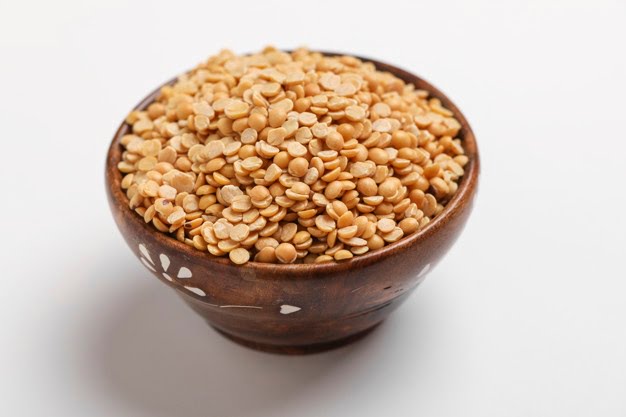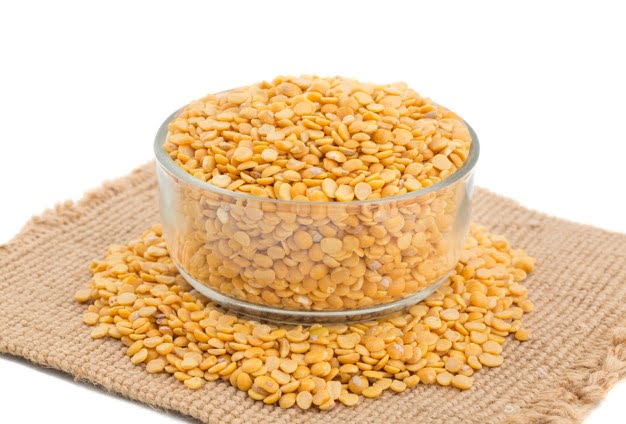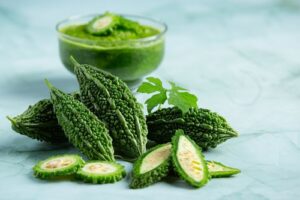Pigeon peas (fio-fio) is a delicious superfood that is loaded with tons of nutrients in a low-calorie package.
Pigeon peas are scientifically called Cajanus cajan and are perennial legumes belonging to the family Fabaceae. Other names include fio-fio (Nigeria), red gram (India), and gungo pea (Jamaica).
Pigeon peas are rich in proteins, vitamins, minerals, fiber, and antioxidants, and contain little or no fat.
The health benefits of consuming pigeon peas include promoting weight loss, managing blood glucose levels in people with diabetes, protecting heart health, as well as providing nutrients for different body functions.
Nutrition Facts of Pigeon Peas
One cup (168 grams) of cooked pigeon peas contains [1]:
- Energy: 850 kilojoules (203 calories)
- Protein: 11 grams (g)
- Carbs: 39 g
- Fat: 0.6 g
- Fiber: 11 g
- Potassium: 645 milligrams (mg)
- Calcium: 7% of Daily Value (DV)
- Iron: 22% of DV
- Magnesium: 22% of DV
- Phosphorus: 28% of DV
- Manganese: 34% of DV
- Selenium: 8% of DV
- Zinc: 14% of DV
- Copper: 50% of DV
- Folate: 46% of DV
- Thiamin: 22% of DV
- Riboflavin: 6% of DV
The daily value (DV) is the amount of a vitamin or mineral contained in a daily 2000-calorie diet. Approximate values are given.
Health Benefits
The health benefits of pigeon peas are attributed to their high phenolic content.
1. Diabetes Management

Pigeon peas contain antioxidants that improve the body’s defense mechanisms.
A 2015 study revealed that consumption of germinated pigeon pea extract gave rise to reduced fasting blood glucose levels in diabetic rats. Concluding that germinated pigeon peas could be used as a dietary supplement for hyperglycemia and LPO [2].
The low glycemic index of pigeon peas and other legumes makes them a good meal for people with diabetes [3].
2. Promotes weight loss
Pigeon peas have a high protein and dietary fiber content.
Dietary fiber contributes to weight loss by increasing a feeling of fullness or satiety, which prevents overeating and maintains the digestive system.
3. Lowering blood pressure
Pigeon peas are high in potassium, making them an ideal food for people with high blood pressure.
Potassium reduces the effects of sodium in the body because a low potassium intake and high sodium intake are risk factors for developing high blood pressure.
4. Prevents anemia
Folate (folic acid), found predominately in pigeon peas, is essential for the body’s production of red blood cells and the development of an embryo’s nervous system during the early stages of pregnancy.
Adding pigeon peas and other legumes to your diet helps prevent anemia in children, and adults, and ensures that newborn babies are born without neural tube defects.
5. Promotes digestive regularity
Pigeon peas are high in dietary fiber which prevents constipation, prevents colon cancer, and promotes a healthy digestive tract.
Related: 15 African foods high in dietary fiber
6. Boosts growth and energy
Pigeon peas (fio-fio) contain a high content of proteins essential for growth and development, especially in children. Protein is essential for the formation of cells, tissue, muscles, and bones.
One cup of pigeon peas provides about 850 KJ [1] of energy, making it a healthy source of energy.
Culinary uses

Pigeon peas are protein-rich foods and have been used or added to make a variety of dishes.
In Nigeria, “Ji na Fio-fio” is a delicacy eaten in eastern Nigeria. It is prepared with yam (Ji) or cocoyam and pigeon peas (fio-fio) and then garnished with palm oil, African oil bean seed, and Piper guineense leaves.
In India, it is consumed as dhal (split cotyledons). To prepare it, it is cooked in water to the desired degree of softness while the immature green seeds are eaten as a vegetable.
Nowadays, pigeon peas are also incorporated into food products like pasta, biscuits, and noodles due to their high fiber, and protein content, gluten-free status, and low glycemic index [4].
Precautions
Pigeon peas may cause bloating, stomach discomfort, or gas in some people due to the presence of indigestible carbohydrates called oligosaccharides.
These effects can be reduced by soaking the beans before cooking and discarding the cooking water after it is cooked.
The Bottom Line
Consumption of pigeon peas (fio-fio) has several health benefits due to their nutrient-dense and bioactive compounds profile.
Adding pigeon peas or other legumes like bambara nut and black-eyed peas to your diet can help control blood glucose levels, maintain a healthy heart, combat obesity, and prevent cancer.
Get new free and exclusive health tips delivered straight to your inbox!



